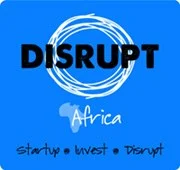Five global accelerators supporting African startups

Fast forward to 2016, and what started as a trickle in the last 18 months or so has now become a wave. Here are five international accelerator programmes – and accompanying VC funds – backing African tech startups.
500 Startups
A global venture capital seed fund and startup accelerator founded by Dave McClure and based in Silicon Valley, 500 Startups has around US$200 million in assets under management. Its four-month accelerator sees thousands of applicants vying for intake and only two per cent making the cut.
In spite of the level of competition, 500 Startups has led the way when it comes to African startups, selecting South Africa’s SweepSouth and Ghana’s Kudobuzz for a programme last year, and startups from Kenya and Egypt the year before. Nigerian e-commerce startup Podozi was in one of their most recent cohorts.
The company has gone beyond just accepting African startups onto its programmes. It has also launched 500 Falcons, a US$30 million fund for investing in startups from the Middle East and North Africa (MENA) region, while it has partnered DraperDarkFlow to host the US$1 million SpeedUPAfrica bootcamp in Ghana.
Techstars
Launched in the United States (US) in 2006, Techstars is now a global phenomenon, running programmes across the world. Less than one percent of the companies that apply to Techstars are accepted.
Kenya’s Bamba Group is the overseas trailblazer in this case, taking part in the Techstars accelerator held in Austin, Texas, but the accelerator’s biggest impact on African startups has come on the continent rather than back home in the US. Techstars teamed up with Barclays to run the bank’s fintech accelerator programme at the end of last year, and just completed its own African accelerator in Cape Town.
It is also keen for African startups to join more of its overseas programmes, inviting applications for programmes in New York and London recently.
Nest
Hong Kong-based VC firm Nest typically partners large corporates and runs accelerators on their behalf, aimed at identifying startups for partnerships, investments or acquisitions. The company launched its African operations in Kenya last year, led by Aaron Fu, and has not looked back since.
A product lab with Barclays aside, there have been no programmes held in Africa as yet, but the company has been keen to get African startups involved in its Asia-based programmes. Kenya’s SuperFluid and South Africa’s Creditable took part in a Hong Kong fintech programme held in conjunction with DBS Bank, while opportunities have also been available in Singapore.
Nest also recently made its first African investment, in Kenyan instant messaging platform Ongair.
Startupbootcamp
Launched in Amsterdam in 2010 and now also running programmes in Berlin,Copenhagen, Eindhoven, Istanbul, London, Barcelona, Rome and Singapore, Startupbootcamp is another major accelerator fluttering its eyelashes at African startups.
Tanzanian startup BimaAfya, a mobile micro-health insurance product specifically targeted at the poor and the informal sector, recently took part in the three-month Startupbootcamp InsurTech accelerator programme in London, but African programmes are also underway.
The accelerator has started a number of initiatives in South Africa, holding mini-bootcamps last year, and there have been suggestions more full-scale programmes are in the offing. Startupbootcamp South Africa co-founder Karolin Kruiskamp told Disrupt Africa last year the mini-bootcamps were a “truly vibrant experience”, and proved a full three-month programme would work in the country.
Y Combinator
So what of Silicon Valley-based Y Combinator, founded in 2005 and considered possibly the world’s most powerful startup accelerator? It’s model was the inspiration for a number of programmes in Africa, notably the now dormant 88mph, but Y Combinator itself has been mostly quiet when it comes to Africa.
There are signs this may be changing though, with Egyptian bug-reporting app Instabug joining a Y Combinator programme earlier this year, and receiving funding. It remains to be seen whether the renowned accelerator will further increase its activities in Africa, or whether they will take the advice of Sandheep Ramluckan, managing director of Cape Town-based programme StartUp90, who says the Y Combinator approach does not work for African startups.
Source: Disrupt Africa

Disrupt Africa is a one-stop-shop for all news, information and commentary pertaining to the continent’s tech startup – and investment – ecosystem. With journalists roaming the continent to find, meet, and interview the most innovative and disruptive tech startups, Disrupt Africa is a true showcase of Africa’s most promising businesses and business ideas.
Our readers can keep up-to-date with the quirky world of tech hubs and accelerator programmes; and our reporters provide live coverage of the all-important tech and entrepreneurship events across Africa.
For our startup, entrepreneur, and investor friends alike, our mission is to provide practical information and advice from across Africa’s varied vibrant markets, and to promote engaged and thought-provoking discussion about the exciting ecosystem we belong to.
Go to: http://disrupt-africa.com/






















